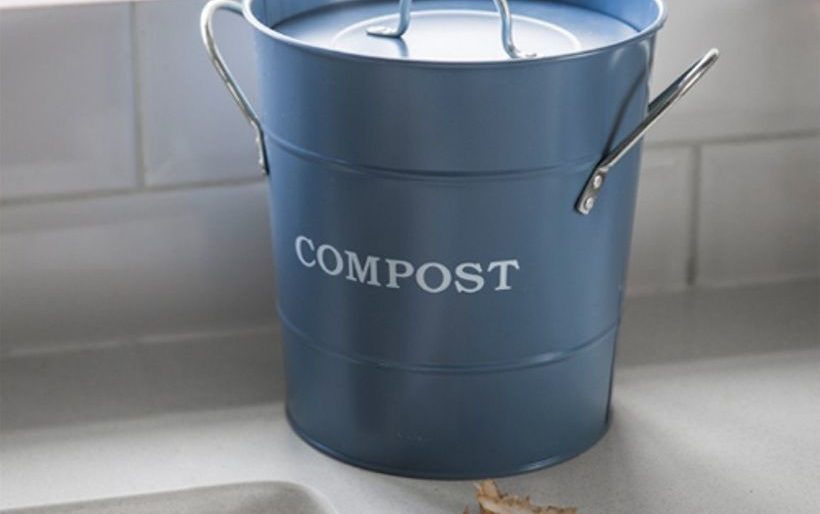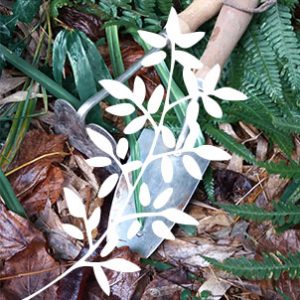You own a garden, you love it, and even pamper it for some of you. But !!! If ecology attracts you and inspires you, you don’t really know where to start to become greener through your garden?
Here are some simple tips to start … and deepen the subject.
Compost bin
You’ve heard about it thousands of times, read about it, or followed up on wormculture, and finally it felt like you have to pass a PHd for the a second time in your life, so you’ve given up …
When the only thing to do is: to find a rather shady spot in your garden (for in the sun it will be necessary to water it more regularly), not too far from the kitchen and to stick a wooden pallet on the ground, 4 stakes planted at the corners, and go round with a chicken wire or other of 1m high. You dump your garbage, peelings of vegetables and fruits and rotten items (not citrus fruits, too long to decompose). You do not put your weeds in it! You stir the pile once a month with a garden fork, you water it when it’s too dry, and you get the compost once the mixture has become like black earth (after 6 to 9 months ). You put this marvel around your shrubs and trees that suffer a little, around the rose shrubs, in the vegetable garden, and you incorporate it into the existing earth with a small shovel or claw.

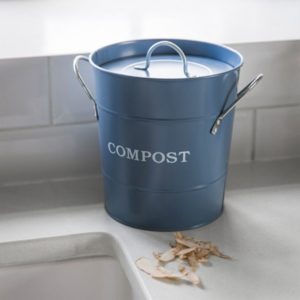
Advantages: you reduce your waste by a third, you no longer buy chemical fertilizer, and you no longer carry your bags of cut grass to the dump.
Practical tip: buy a small intermediate bin to put in your kitchen to store the peelings the time to transfer them into the compost once or twice a week. You can put them in a paper bag (like fruits and vegetables) and throw the filled bag into the compost, it will break down with the rest.
The vegetable garden
There too, you feel like you’ve missed the exam, with your stunted carrots and your black ass’ s tomatoes … so you’ve given up.
When the only thing to do is: to find a very sunny corner (I insist) in the garden, to make a pile with straw, compost and the existing earth, and on this mound to plant for example tomato plants , onions and potatoes that are easy to start with. Be careful, it is better to start modestly and have time to take a regular look on your proteges, than wanting to copy Villandry’s gardens and shoot you in the head because you have gourds that smother the beans on 200 m2. Regular watering (meaning always at the same rate and NOT every day) to avoid the black ass on tomatoes; weeding when the feet are small then letting everything grow in a permaculture way when the feet have grown well. We can cut the top of the tomato plants when they are 1m30 high, so that the sap goes into the fruits already there rather than in new flowers. Don’t forget to harvest !!!!!!!!
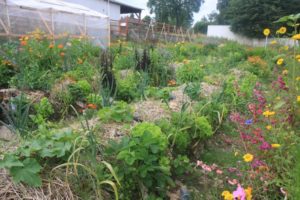
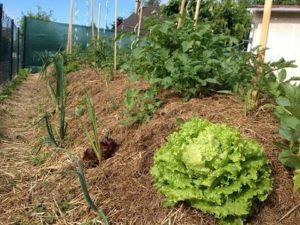
Advantages: you eat your own tomatoes (a thousand times better) that are organic and you have the nice impression of fooling Monsanto, supermarkets and your mother who has always managed better than you in the vegetable garden … 😉
Practical advice: when you are a little peppered with your garden, buy fertile vegetable seeds (at Kokopelli for example), that you can recover from one year to another to replant your vegetable garden (the seeds inside the tomatoes make new tomatoes to sow next year, yes, that’s the principle!)
Dead leaves
Are you the kind of person who puts them in sacks and to burn them or to bring themto the trash? Holy shit!! Don’t do that anymore! Gather them with a lawn rake, and put them in your flowerbeds between shrubs and perennials where they will feed the soil by decomposing, keep moisture and prevent weeds to grow … Exception: dead leaves coming from diseased trees -horse chestnut for example – are to be evacuated or burned (only allowed in certain places and at certain times …)
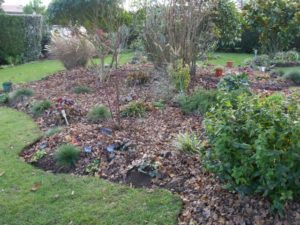
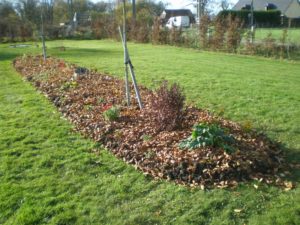
You can also use them in the vegetable garden mentioned above to recreate a humus for the crops of the year after.
Advantages: you stop transporting these m3 of wet leaves at kilometers from the house and you participate in rebuilding the soil from your garden.
Tip: if the leaves are too light because of the weather, I advise you to water the mulch once set up, so that it clogs and avoids flying.
There you go!!! This is just the beginning before… the hens, the water recovery tank, the geothermal system, etc! (in a next article probably …)



